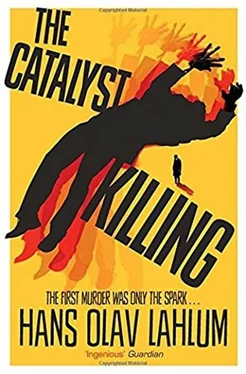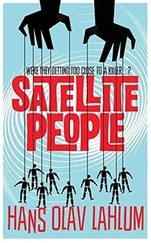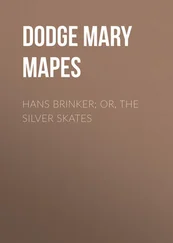When I asked for a spare key so the flat could be examined, I was given one straight away. I had no real hope of finding any technical evidence, as the flat looked too clean and tidy for that. But I did harbour a small hope that a fingerprint might help to reveal the identity of this mysterious guest – even, perhaps, of the murderer.
There was still a fortnight until the start of the autumn semester, and so it was far easier than I had expected to find my way round the university library. I was told that the section where the literature students usually sat had around forty places. Only one of these was occupied at a quarter past eleven.
Miriam Filtvedt Bentsen, still dressed in blue jeans and a multicoloured sweatshirt, sat in the middle of a deserted landscape of empty chairs like a silent and lonely queen. There was a thick notepad in front of her and around it, an encyclopedia and five French dictionaries.
The sole occupant of the library was reading with such concentration that she did not notice me, even when I was only a few steps away. I stood there for a minute without attracting her attention, before I alerted her to my presence with a half-whispered: ‘Do you perhaps know where I might find Miss Miriam Filtvedt Bentsen?’
If I had expected her to start in surprise, I was disappointed. Miriam Filtvedt Bentsen was obviously of a far more balanced nature than I thought, and what is more, she was familiar with the silence rule. It would take more than a whispering policeman in the library to unnerve her. She looked up, nodded with a quick smile, pointed to the exit and stood up. I obediently followed behind her, taking it as a good sign that, after a moment’s hesitation, she had left the encyclopedia and all five dictionaries on the desk.
Miriam Filtvedt Bentsen felt that it was too early in the day for a longer break, so turned down the offer of lunch in the refectory. I saw it as positive that she then said yes to a coffee and a piece of cake – especially as she ate incredibly slowly and pensively.
My first question was about the size of the windows in the cabin in Valdres. Miriam Filtvedt Bentsen took her time, chewed on a couple of mouthfuls, and then answered that she unfortunately did not dare say for sure. The windows had been small, and were relatively high, so she doubted that it would be possible for a man of Falko Reinhardt’s size to get out that way. But she could not be certain. Whatever the case, the window had been shut from the inside when she went into the bedroom around two o’clock that morning. So if that was how he had escaped, he would have needed Marie’s help, she added, with an inquisitive smile.
I did not say anything to the contrary, but asked instead what she herself had been doing at ten o’clock the night before.
I asked with my heart in my throat, and once again anticipated a strong reaction – which did not happen this time either. Miriam Filtvedt Bentsen looked at me with even greater curiosity and asked if I really suspected her of murder? I tried to defuse the situation by saying that I did not, but that I had to ask her as a matter of routine, for the reports.
She replied that good reporting procedures were important in all organizations, and then added on a more serious note that her alibi was unfortunately not perfect. She had been in a meeting with several other people at the party office from six until eight, but had then carried on working alone until ten, when she caught a bus and a train back to her student flat. And at the moment, she was the only one in her corridor who had returned after the holidays.
In theory, there was nothing to have stopped her from being at Smestad around ten. But she had not been there, she said, and suddenly looked very serious indeed.
I thought to myself that Patricia would hardly be impressed by this alibi. And that I personally was relieved that Miriam had not given a boyfriend as an alibi and that there was still no hint of any boyfriend.
I turned the conversation back to their trip to the cabin, and asked whether she or Kristine Larsen had slept closest to the door. She looked at me, somewhat startled, but replied without hesitation that she had been closest to the window, and Kristine closest to the door. She told me in response to my follow-up question that Kristine Larsen had wanted to sleep with the door ajar the night before the disappearance as well.
My next question felt a bit intrusive. But I trusted Patricia, and so I asked if I was correct in thinking that on the night of Falko Reinhardt’s disappearance, Miriam Filtvedt Bentsen had also been awake, even though she had had her eyes closed.
Miriam Filtvedt now looked at me with open curiosity and admiration. But her voice was just as calm, and her reply just as measured: she had turned out the light around midnight, but had not been able to sleep, and had thus lain awake. To avoid disturbing her roommate, she had been as still as she could. And given an academic proviso that she might have dropped off or confused people’s footsteps, she could therefore confirm Kristine Larsen’s claim that Falko Reinhardt’s footsteps had not been heard out in the hallway in the hours before he disappeared.
She could not help asking how I, two years later, could know that she had been awake. But then she answered this herself in the same breath, saying that I presumably could not say in light of the ongoing investigation.
I nodded meaningfully, noted down her answers, and reserved the right to contact her again should any more questions arise. She nodded, said that I now knew where to find her if that was the case, and then disappeared back into the library as if to illustrate the point.
Miriam Filtvedt Bentsen left half a cup of coffee and some cake on the table in her wake. They reinforced the feeling that she had now been given something to think about, even though I could not for the life of me see her as guilty of murder – or any other crime, for that matter.
After Miriam Filtvedt Bentsen had gone back to the library, I treated myself to another cup of coffee and a couple of rolls for lunch. In the time it took me to eat this, I decided that I would follow up the old Nazi lead before going to the police security service. I was mentally putting it off, and used the excuse that it might be handy to have a clear overview of all the possible threats first.
I therefore went straight from the refectory to the history department. Professor Johannes Heftye was, as luck would have it, alone in his office and said straight away he would be happy to talk to me. He was a grey-haired, grey-bearded and well-dressed man in his sixties, with the Second World War as his speciality. He had also once been a Communist Party politician.
The professor’s memory was impressive, as far as I could tell. He immediately remembered not only Falko Reinhardt, but details about his unfinished thesis and the last supervision he had had with him. The thesis was about an NS network from the Second World War, a subject that both the student and supervisor thought was fascinating and important. Falko had called the professor out of the blue one evening during the holidays and asked if he could get guidance as soon as possible about some sensational new findings.
Professor Heftye’s curiosity was immediately piqued and they had met here at the university on 2 August – three days before Falko Reinhardt’s disappearance. Falko had been unusually excited and said that he had discovered things that might indicate that parts of the network were still active. He had then added in a hushed voice that it looked as though some of them were discussing options for a major offensive of some sort.
His supervisor got the impression that this might be an assassination or sabotage of some kind, but the usually so self-assured Falko Reinhardt was uncharacteristically vague about what kind of plans they might have and when it might happen. When, in addition, Falko Reinhardt did not want to say where he had got the information, his supervisor asked him to think about it and check all the information again, then come back when he had more to report.
Читать дальше












